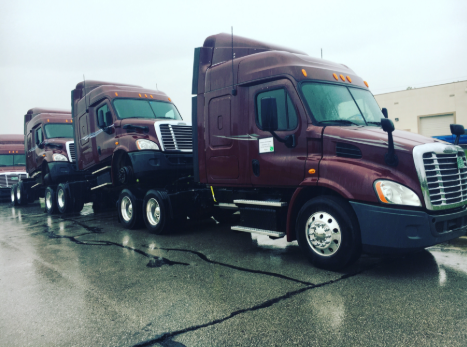Leading Indicators Point to Downturn as Retail Truck Sales Surge

Worst Scenarios for Heavy Duty Vehicle Demand Remain Unlikely
According to ACT Research’s (ACT) latest State of the Industry: Classes 5-8 Report, the “less negative” freight data reported early in Q3 has softened further since the September 1st tariff impositions.
ACT’s State of the Industry: Classes 5-8 report provides a monthly look at the current production, sales, and general state of the on-road heavy and medium duty commercial vehicle markets in North America. It differentiates market indicators by Class 5, Classes 6-7 chassis and Class 8 trucks and tractors, detailing measures such as backlog, build, inventory, new orders, cancellations, net orders, and retail sales. Additionally, Class 5 and Classes 6-7 are segmented by trucks, buses, RVs, and step van configurations, while Class 8 is segmented by trucks and tractors with and without sleeper cabs. This report includes a six-month industry build plan, backlog timing analysis, historical data from 1996 to the present in spreadsheet format, and a ready-to-use graph package. A first-look at preliminary net orders is also published in conjunction with this report.
“September NA Class 8 retail sales reached a new record in seasonally adjusted terms, and in absolute terms were the highest since December 2006, ahead of the EPA07 emissions standards. While most of the incremental strength came from the straight truck market, tractor capacity was added a touch faster than expected,” said Tim Denoyer, ACT Research’s Vice President and Senior Analyst. He explained, “We realize this seems to conflict with signs of capacity contraction such as bankruptcy and employment data, and would remind readers that private fleets, which now account for more than half of truckload capacity, are still growing.”
Speaking about the Class 8 market, Denoyer said, “In concert with weak/deteriorating freight volumes and rates, forward-looking demand indicators continue to erode, with mid and downstream data points beginning to cycle lower. Ultimately, the current situation of weak orders and strong build is unsustainable, and downward build plan revisions are happening. That said, the worst case scenarios for heavy vehicle demand remain unlikely.”
Regarding the medium duty markets, he commented, “Medium duty demand metrics remain in better balance, but there are signs of fraying on weak net orders, relative build strength and excessive inventories.”
Category: Featured, General Update, News










